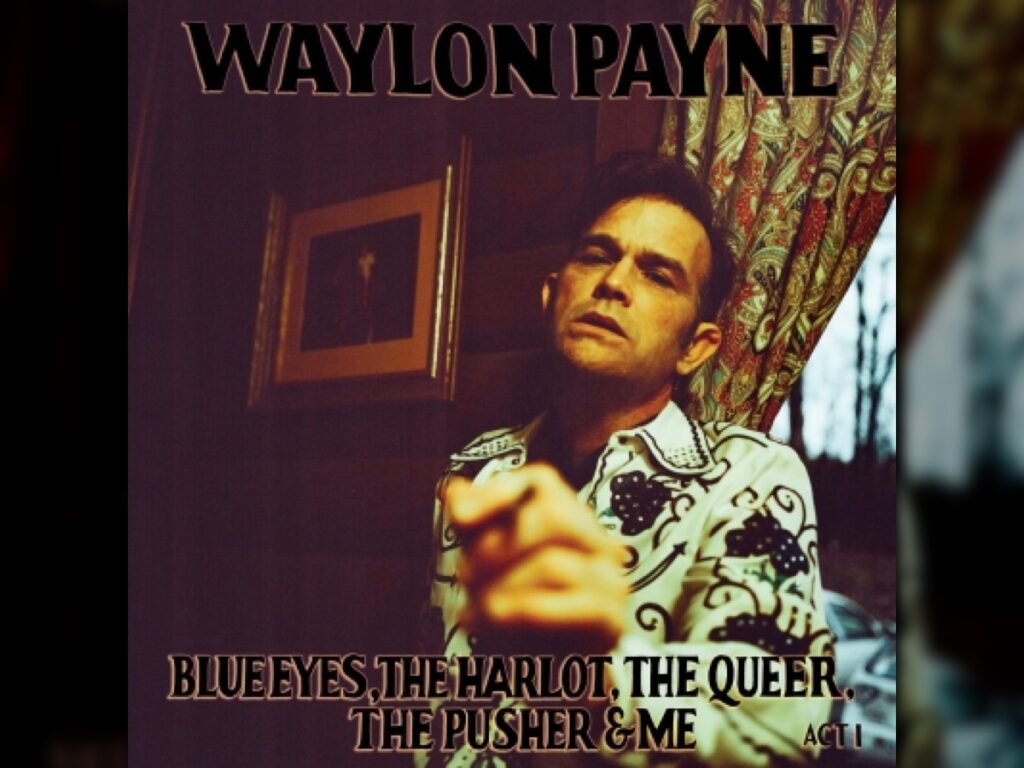Waylon Payne’s First Act, After Many
Review: “Blue Eyes, The Harlot, The Queer, The Pusher & Me: Act I”

By Yvonne Murray, Contributing Writer
When you’re the son of golden-age country singer Sammi Smith (“Help Me Make It Through the Night,” many more) and Willie Nelson’s guitarist Jody Payne, life was never going to be humdrum. Despite his seemingly glamorous upbringing, Waylon Payne has had his share of troubles. Battles with addiction and life on the streets has meant that his road to Nashville wasn’t the Yellow Brick Road that some might have expected from his pedigree.
‘Blue Eyes, The Harlot, The Queer, The Pusher & Me, Act I’ is, as the name implies, the first act from his upcoming album. Payne is releasing songs in small batches, in the form of EPs, before the final full album release in September. The song sequence is a story he clearly wants to tell, and something we should heed when the album eventually does come out. What an EP like this lacks in length, it gains in savage honesty; it’s an Americana masterclass.
This first act opens with ‘Sins of the Father’ and its indelible first line, ‘Mama’s been crying in the kitchen’ – a line you will also find in Miranda Lambert’s ‘Run, Daddy, Run’. And, in fact, Payne has written for Lambert with some success. But that’s where the similarities end, as the rest of the lyrics read more like a poem than a song. In ‘Sins of the Father,’ he plots the story of a downward spiral instigated by his father. His redemption eventually comes when he sees his best friend turn from a guy into a Dad, hinting that perhaps he’d already witnessed his Dad turn into…just a guy.
The melody breaks no new ground, but the production (by Frank Liddell and Eric Masse), arrangement, and Payne’s voice are sublime. Despite the bleak story of the father introducing him to drugs, it ultimately is an uplifting message, when it becomes clear that Payne is determined to forgive.
‘Dead on a Wheel’ is a plea for more love and kindness in the world. The song lays out scenarios where people’s troubles are used as gossip fodder and ridicule, with nobody there to lend a hand. The track features an outstanding harmonica part by Willie Nelson’s long-time sideman Mickey Raphael.
The EP concludes with ‘What a High Horse,’ about a man to whom, despite being dead, the idiom applies. Overall, it seems as if this first act is devoted to his father, presumably the ‘Blue Eyes’. If the next acts feature a Harlot, a Queer, and a Pusher in the cast, we’re in for a hell of a show.
If Act I is any indication, it’s just the first in a trinity of EPs that, when assembled, are destined to go down as one of the albums of the year.